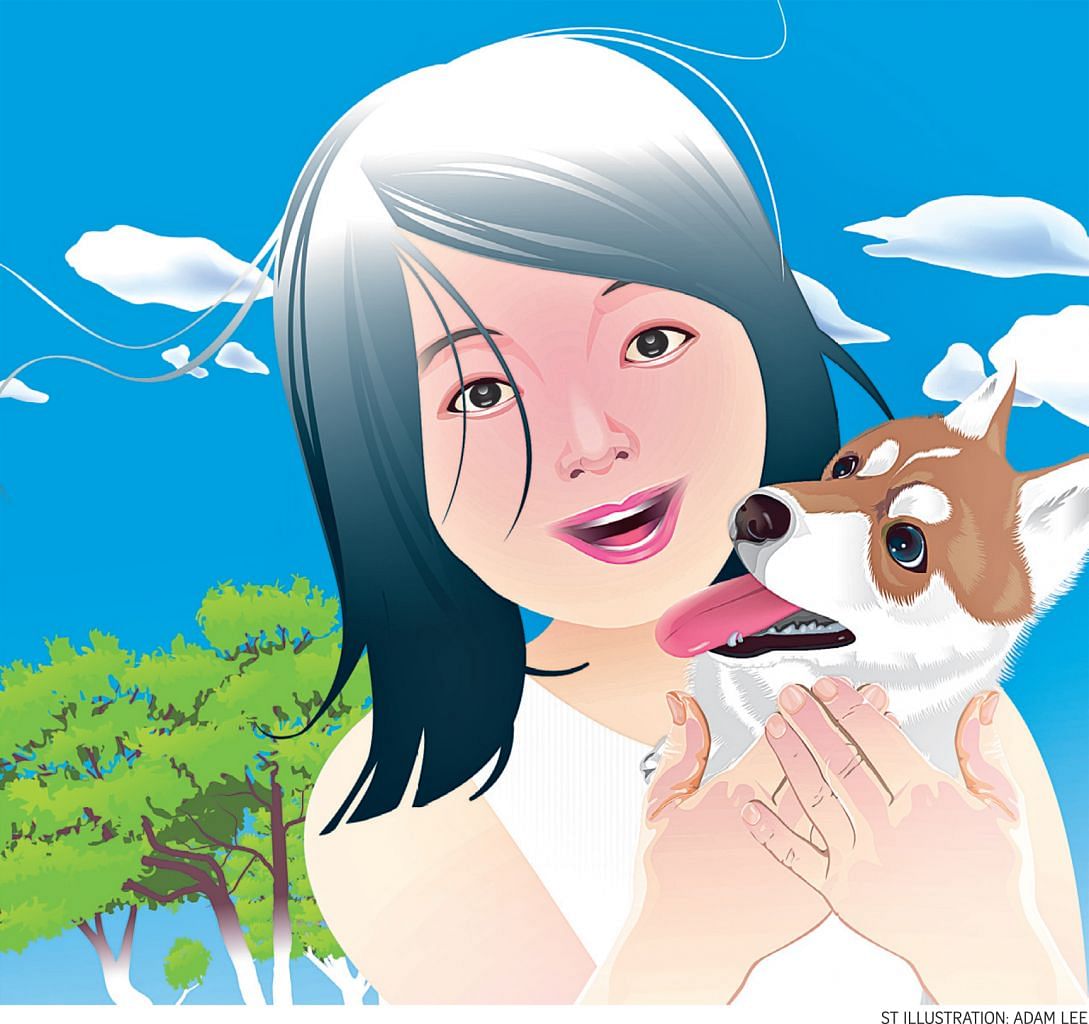This year, after much begging, the children got their wish to own a puppy. They agreed to be responsible for cleaning, walking, feeding and training it.
Little did we realise until it arrived that the effort involved would be like raising a child.
There is excitement and worry, exasperation and laughter, failure and success and, not to mention, countless feeding and toileting mishaps.
I recall that I did not learn much about pets at medical school. Yet, research shows that they can have a range of effects on our mental and physical health.
For example, keeping a dog or cat is associated with lower stress levels, less sadness or loneliness and more opportunities for social interaction, outdoor activity and exercise.
Pet owners have better control of their hypertension, triglycerides and cholesterol, while older folk show improvements in their daily functioning.
People with autism spectrum disorders may also reap benefits in socialisation and communication, based on preliminary evidence.
Although keeping pets has potential risks, such as allergic reactions to animal dust and injuries like bites or falls, exposure to animals may protect children against asthma.

Recent evidence from two historically isolated North American agricultural communities shows that Amish children raised in traditional dairy farms had markedly lower rates of asthma (5.2 per cent) than Hutterite children (21.3 per cent), who lacked animal contact due to the mechanisation of farming in their community.
WHEN A PET DIES
In Singapore, there are about 60,000 dogs and 50,000 cats kept as pets, according to the Agri-Food and Veterinary Authority (AVA).
Given that there are about 1.2 million households here, based on figures from SingStat, this translates to a 9 per cent household ownership of pets.
This is considerably lower than the figures in Europe (45 per cent) and the United States (60 per cent).
Space constraints could be a factor dissuading people here from keeping pets. Other factors include time and cost, as well as religion or culture.
Furthermore - although my children are averse to this topic being raised - it must be pointed out that the lifespan of a pet is usually shorter than the owner's, so one has to be prepared for the pain of farewell.
During my medical training, I remember looking after patients who were distressed when their pets died.
Some reported sadness, insomnia, agitation, palpitations and chest discomfort.
An elderly man said he had chest pain, anxiety and insomnia after his dog drowned.
He said it felt like a child had died and he could not face having another pet after that.
Grief is the profound sadness caused by the loss of a loved one. In that sense, the loss of a pet can invoke grief, just like losing a dear family member or a close friend.
In another case, a woman's elder son died unexpectedly after a routine dental procedure. Her younger son took her to my clinic for an assessment.
She complained that she could not sleep and was constantly weeping. It became apparent that she felt guilty for secretly wishing that it had been her younger son who had died instead.
The word "grief" means heavy or burden, which aptly describes the distress of both patients.
GRIEF OR DEPRESSION?
As psychiatrists, we try to distinguish grief from depression. This is because grief will usually resolve by itself, but depression may need treatment.
Both grief and depression involve sadness, inability to feel pleasure and negative thoughts.
However, grief differs in that it tends to have a marked sense of loss, preoccupation with the loss or the deceased, and with bursts of positive emotion, such as when recalling happier times together.
Grief can sometimes deteriorate and turn into depression.
However, some argue that labelling grief as depression will "medicalise" a normal human response to loss.
In any case, this kind of nosological (the classification of diseases) debate should not fundamentally affect how doctors practise because the ethical principles of healthcare are unchanged when it comes to comfort, relieving suffering and avoiding harm.
Whether we call it grief or depression, the support of family or friends is important to get a person back on his feet.
To recover from loss, it helps to maintain a simple daily routine, build confidence and let wounds heal. Perhaps grief is a sort of price for experiencing the warmth of affection.
Looking back over the past year, the children did keep their promise to care for their puppy diligently.
Surprisingly, it has resulted in an abundance of warmth and cheer, improving not only our health but also our exercise routine.
Taking all these psychological and physical benefits into consideration, the British philosopher Bernard Williams was indeed right when he said: "There is no psychiatrist in the world like a puppy licking your face."
•Dr Chua Siew Eng is a specialist in psychiatry and a consultant at Raffles Counselling Centre

